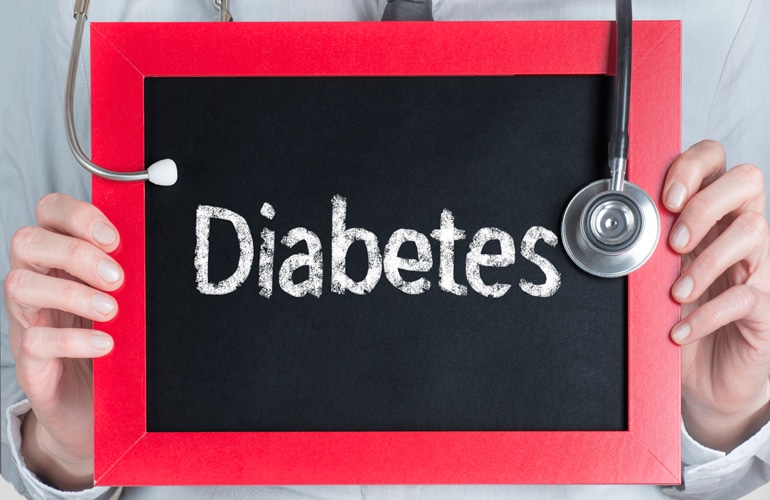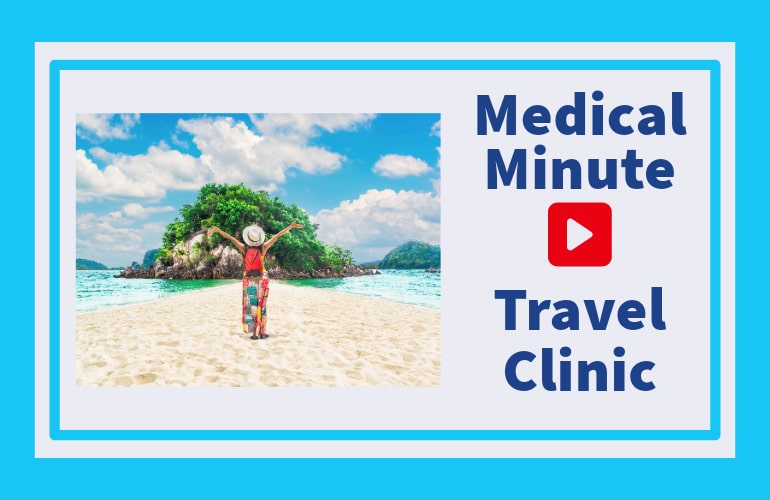
An increasingly common disease, diabetes is caused by problems in the way your body makes or uses insulin. Insulin is an important hormone that affects how the body utilizes glucose, the main type of sugar in the blood. Glucose comes from the foods we eat and is the main source of energy used by our bodies.
During digestion, your body breaks down the foods you eat into sugar and other nutrients, which are then absorbed into the bloodstream. Your blood sugar level rises after a meal and then triggers your pancreas to make insulin. Once in the blood, insulin works to allow sugar into your body’s cells. Without enough insulin, sugar can’t enter the cells effectively causing your blood sugar levels to be higher than normal. High blood sugar levels, also known as hyperglycemia, can be a sign of diabetes. Other key warning signs* of diabetes are:
• Frequent urination
• Increased thirst
• Frequent or slow-healing infections
• Increased appetite
• Feeling tired
• Rapid unintentional weight loss
• Blurred vision
Type 1 and Type 2 Diabetes
There are two major types of diabetes that people suffer from: Type 1 and Type 2. Type 2 is the most common form. Both kinds of diabetes cause blood glucose levels to be higher than normal. Type 1 diabetes is an autoimmune disease that causes the immune system to attack and destroy the cells of the pancreas that produce insulin. People with Type 1 diabetes must take insulin every day to help keep their blood sugar levels within a specified range.
People who suffer from Type 2 diabetes still produce some insulin, but not enough and their body does not use the insulin properly. Sugar is not able to enter the body’s cells effectively. This is called insulin resistance. As a result, the pancreas works harder to produce more insulin, and can eventually wear out. If this happens, blood sugar levels cannot be within a normal range. Type 2 diabetes usually occurs gradually, and it often runs in families. If you are overweight, have a low activity level, and a poor diet, you have a greater risk of developing Type 2 diabetes. However, people who are of normal weight can also develop Type 2 diabetes.
Complications can be severe
Diabetes is a disease that can lead to severe complications if it is not controlled. Some of the most serious long-term complications of diabetes can include:
- Increased risk of cardiovascular disease
- Chronic kidney failure
- Eye disease leading to blindness
- Nerve damage (neuropathy)
- Vascular disease
- Foot/leg amputations
However, with adequate treatment diabetes can be properly controlled to prevent long term complications.
Treatment includes diet and exercise
The primary treatment for Type 2 diabetes is proper exercise and diet. Regular exercise is important for everyone, but especially if you have diabetes. Exercising regularly helps control the amount of glucose in the blood. It also helps burn excess calories and fat so you can better manage your weight. Eating properly every day helps manage your weight and controls the amount of glucose in your blood. If diet and exercise are not bringing your glucose levels into desired range, oral medication or insulin may also be needed. Keeping diabetes under control is important to preventing long term complications.
Prevention is key
Leading a healthy lifestyle is the best way to prevent diabetes. Those who eat right and lose weight if necessary, get regular exercise, don’t smoke, and keep their blood pressure under control are much less likely to develop this disease. Diabetes is frequently treated by specialty physicians, called endocrinologists. The Division of Endocrinology at Reliant Medical Group is dedicated to providing superior care for diabetes and other endocrine problems. To learn more, call (508) 425-5880 or visit www.reliantmedicalgroup.org/endocrinology.
*Sometimes people with type 2 diabetes show no symptoms.
Stay in touch with the conversation, subscribe to the RSS feed for comments on this post.


